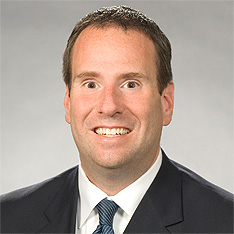Massachusetts Lawyers Weekly Recognizes Lubin & Meyer Attorneys as Leaders in the Law 2024
Firm records 4 of the top 10 verdicts and settlements in 2023
May 21, 2024 - Leaders in the Law, Massachusetts Lawyers Weekly

Lubin & Meyer attorneys were honored at the Leaders in the Law 2024 event held May 21, 2024 at the Colonnade Hotel in Boston, MA. The event celebrates lawyers of the year, in-house leaders and the top five verdicts and top five settlements of the year prior. Lubin & Meyer achieved an unprecedented 4 of the top 10 verdicts and settlements of 2023.
Lubin & Meyer attorneys who were honored as 2024 Leaders in the Law are:
Below are descriptions of the Lubin & Meyer achievements as published in the Leaders in the Law special publication by Massachusetts Lawyers Weekly.
- $20M Verdict - Medical Malpractice - Loss of Leg
- $20M Verdict - Medical Malpractice / Wrongful Death - Aortic Aneurysm
- $ 7.56M Verdict - Medical Malpractice - Pulmonary Embolism
- $15M Settlement - Medical Malpractice - Sleep Study Death
$20 Million Verdict
Luppold v. Lowell General Hospital
Robert M. Higgins, Lubin & Meyer, Boston
Third largest verdict of 2023

In March 2023, Robert M. Higgins of Lubin & Meyer in Boston scored a $20 million verdict for his client, who was forced to have an above-the knee amputation after a blood clot was misdiagnosed on two separate occasions.
Steven Luppold, age 43, arrived at Lowell General Hospital’s Emergency Department on March 7, 2015, complaining of back pain and a cool left foot that was turning purple. The physician’s assistant who evaluated him diagnosed the issue as sciatica and he was discharged.
Six days later, Luppold returned to the ED. His foot was still discolored and cool, and he also complained of severe left ankle pain in the absence of any trauma. He was seen by a nurse practitioner who did not ask any questions about his foot or ankle. Again, Luppold was diagnosed with sciatica and discharged home with pain medication. No ultrasound was performed to evaluate his foot and/or ankle.
When Luppold went to Lahey Clinic Medical Center on March 17, his left lower leg was cool and mottled with no pulses. An immediate ultrasound showed a clot from his upper leg extending down to his foot. His only option: an above-theknee amputation, the vascular surgeon explained, which was performed the next day.
During the three-week trial in Superior Court, Higgins presented an emergency medicine expert and emergency room nurse expert who testified that the defendants were negligent in failing to properly work up Luppold’s foot and ankle abnormalities. “We also brought in the only surgical expert to testify, who told the jury that [Luppold’s] leg could have been savedwith the proper treatment to get the blood flowing again,” he says.
The defendants argued that the plaintiff never told them directly that he had foot or ankle problems and that he complained of back pain. Luppold’s two different visits required Higgins to explain to the jury that his client wasn’t changing his story or leaving out pertinent information; he was simply answering the different questions asked by different people at different times.
“At all times his concern was about his leg, and we were able to demonstrate that with the physician assistant’s notes and the nurse that discharged him,” he says. “We had to show the jury to take his experience as a whole.”
Higgins asked the jury for roughly $2 million per year from the date of the injury, or $16 million, but didn’t suggest a specific number for his client’s future, instead reminding them that he would live with problems for the rest of his life. The jurors deliberated for almost 10 hours over two days and returned a $20 million verdict, reaching $28.8 million with interest.
While his client achieved a sense of justice with the verdict, it was bittersweet, Higgins explained, as Luppold was forced to listen to testimony that had the defendants ordered an ultrasound, he would still have his leg.
Download PDF | View lawyer's trial report and related news coverage: $28.8M Verdict (w/interest): Blood Clot Misdiagnosed as Sciatica Leads to Amputation of Leg
$20 Million Verdict
Estate of Joseph Brown v. Kenyon, M.D., et al.
Robert M. Higgins, Lubin & Meyer, Boston
Fourth largest verdict of 2023

An Essex Superior Court jury awarded $20 million to the estate of Joseph Brown, a 43-year-old disabled man who died from an undiagnosed and untreated aortic aneurysm and dissection, in April 2023.
Brown arrived at Salem Hospital on the morning of Jan. 13, 2018, suffering from chest and back pain, as well as shortness of breath. He was seen by an emergency room physician who ordered bloodwork, which showed that Brown had an elevated white blood count. The doctor assumed that he had an infection and recommended that he be admitted.
A hospitalist examined Brown upon his admission and agreed that his symptoms were caused by an infection. He sent Brown to the medical floor, where he stayed overnight.
The next morning, his chest and back pain worsened, and he became short of breath again. The covering doctor that morning ordered an immediate CT scan, which showed a massive aneurysm at the beginning of his aorta and a dissection extending through most of his aorta.
As the necessary surgery could not be performed at Salem Hospital, Brown was set up to be flown emergently to Boston. Before he was able to be transported, however, his aorta ruptured, his heart stopped and he died on his way to the helicopter.
Over the course of the eight-day trial, Lubin & Meyer’s Robert M. Higgins of Boston presented experts in emergency medicine and cardiothoracic surgery, with both opining that the defendants were negligent in failing to order a CT scan on Jan. 13, 2018 and that surgery any time before Brown’s heart stopped would have saved his life.
Testimony at trial also established that Brown’s complaints were consistent with aortic aneurysm/dissection and that a CT scan was the definitive test to rule out this cause.
“The defense put on a very strong case,” Higgins notes, with testimony from the defendants that they knew an aneurysm/dissection could be the source of Brown’s problems, but they thought he was too young and did not have risk factors for that to be the cause.
Demonstrative aids proved to be key to achieving the verdict. In 3D form, the CT scan used to diagnose Brown’s dissection allowed jurors to see where the aneurysm was bulging out of the back of the aorta.
“You can tell a jury about an aortic aneurysm or dissection, but it is far more powerful to actually show them,” he says. “We also had our cardiothoracic surgeon use the image to explain how it could be fixed.”
After deliberating roughly three hours, the jury awarded Brown’s two daughters $20 million; with interest, the verdict totaled $28.8 million.
Download PDF | View lawyer's trial report and related news coverage: $28.8M Verdict: Failure To Diagnose, Treat Aortic Aneurysm and Dissection
$7.56 Million Verdict
McDonald v. Ruberg
Adam R. Satin and Lynn I. Hu, Lubin & Meyer, Boston
Fifth largest verdict of 2023


Shortly after her discharge from the hospital, a woman died of an undiagnosed pulmonary embolism, leading to a $7.56 million verdict in a case tried by Adam R. Satin and Lynn I. Hu of Lubin & Meyer in Boston.
While climbing the stairs to her third-floor apartment, the decedent began experiencing chest pain and shortness of breath. She tried to relax and the symptoms eventually subsided.
But the next morning — with even less exertion — the symptoms returned and an ambulance was called. In the emergency room, she was found to have had a minor heart attack. She was started on IV Heparin and admitted to the care of a cardiologist.
The cardiologist evaluated the decedent and found her to be asymptomatic, but ordered a cardiac catheterization to determine whether any coronary blockages were responsible for the heart attack and required intervention with stenting. The cardiac catheterization revealed no coronary artery disease to explain the cause of the minor heart attack.
Discharged, the decedent arrived home and began climbing the same set of stairs, where her symptoms returned. Although 911 was called, the decedent became unresponsive shortly after and died.
The cause of death was a pulmonary embolism, which Satin explained to the jury was the next most common and life-threatening cause of her symptoms. Although a pulmonary embolism could have been diagnosed or excluded with excellent accuracy with an imaging test called a CT pulmonary angiogram, the cardiologist did not order any testing to rule it out.
But Satin also had to explain why the decedent was asymptomatic during her time under the cardiologist’s care, with stable vital signs. The answer: she was being treated with blood thinners for an unrelated issue, which also happens to be the correct treatment for a pulmonary embolism.
“In a complex medical case like this, we tried to emphasize the things that jurors know — before they ever set foot in the jury box — aren’t right,” he says. “In this case, a woman in the hospital under the defendant’s care decided she was safe to go home and sent her home with a plan to follow up with another doctor in about a month. I said to the jury, ‘She didn’t make it a month, she didn’t make it a week, she didn’t make it a day — she didn’t even make it one hour. Forty-five minutes after she left the hospital she collapsed and died.’ Even before the jury set foot in the jury box they know that doesn’t sound right.”
The jurors agreed with Satin and awarded $7,557,183 to the five children of the decedent, who was just 66 years old when she passed away.
Download PDF | View lawyer's trial report: Failure to Diagnose Pulmonary Embolism
$15 Million Settlement
Estate of Jackson Kekula v. Boston Children’s Hospital
Robert M. Higgins and Andrew C. Meyer Jr., Lubin & Meyer, Boston
Fifth largest settlement of 2023


In a tragic case involving the death of a 6-month-old, Andrew C. Meyer Jr. and Robert M. Higgins of Boston’s Lubin & Meyer helped the parents recover $15 million in a settlement reached in April 2023.
Born on Aug. 9, 2021, Jackson Kekula failed his car seat test prior to being discharged home due to apneic episodes while sitting upright. He went home in a car bed that was to be used until he passed his car seat test.
Kekula arrived at Boston Children’s Hospital on Feb. 18, 2022, to undergo another car seat sleep study. He fell asleep about 9:35 p.m. on the bed and was moved to the car seat at 9:40 p.m. Monitors were placed on various parts of his body to document his brain activity, heart rate, respirations and oxygen saturations during the study.
By 9:48 p.m, his oxygen saturations had dropped into the low 80s, and by 9:50 they were in the 70s; his heart rate had dropped down into the 40s and his brain activity began to show abnormalities from a lack of oxygen.
Although the providers recognized the abnormalities in his vital signs, they attributed them to a malfunction in the machinery. Over the next 30 minutes, as the child’s breathing was abnormal and he was not receiving proper oxygen, the technologists proceeded to adjust his oxygen saturation monitoring and unplug and plug in the machine repeatedly. Neither technologist ever checked the child.
Around 10:25 p.m., the child was removed from his car seat and the technologists realized that he was in cardiac arrest. The code team spent 20 to 30 minutes attempting to revive him before getting his heart started again. He was transported to the ICU on life support.
An MRI showed that he had suffered devastating and irreversible brain damage from the lack of oxygen. After extensive discussions with physicians, his parents decided to remove life support after 12 days and he died in his mother’s arms on March 2, 2022.
“This was a tremendously tragic case and a horrible situation for everyone — including the defendants,” Meyer said. The parties mediated the claim and the case settled for $15 million shortly after mediation and before suit was filed, the result of a persuasive case and strong expert testimony necessary, Meyer noted.
“You can resolve a claim with a velvet glove and you don’t always need the iron fist,” Meyer explained. “We were able to work cooperatively with ... all the parties involved. It was incredibly important to not only get a positive result for our clients to get closure in this case, but also to have the hospital change its policies and procedures to make sure that nobody else gets harmed.”
Download PDF | View lawyer's trial report and related news coverage: Boston Children's Hospital Agrees to Record-setting $15 Million Settlement for Death of Infant Undergoing Sleep Study
Return to Medical Malpractice Lawyer News index
